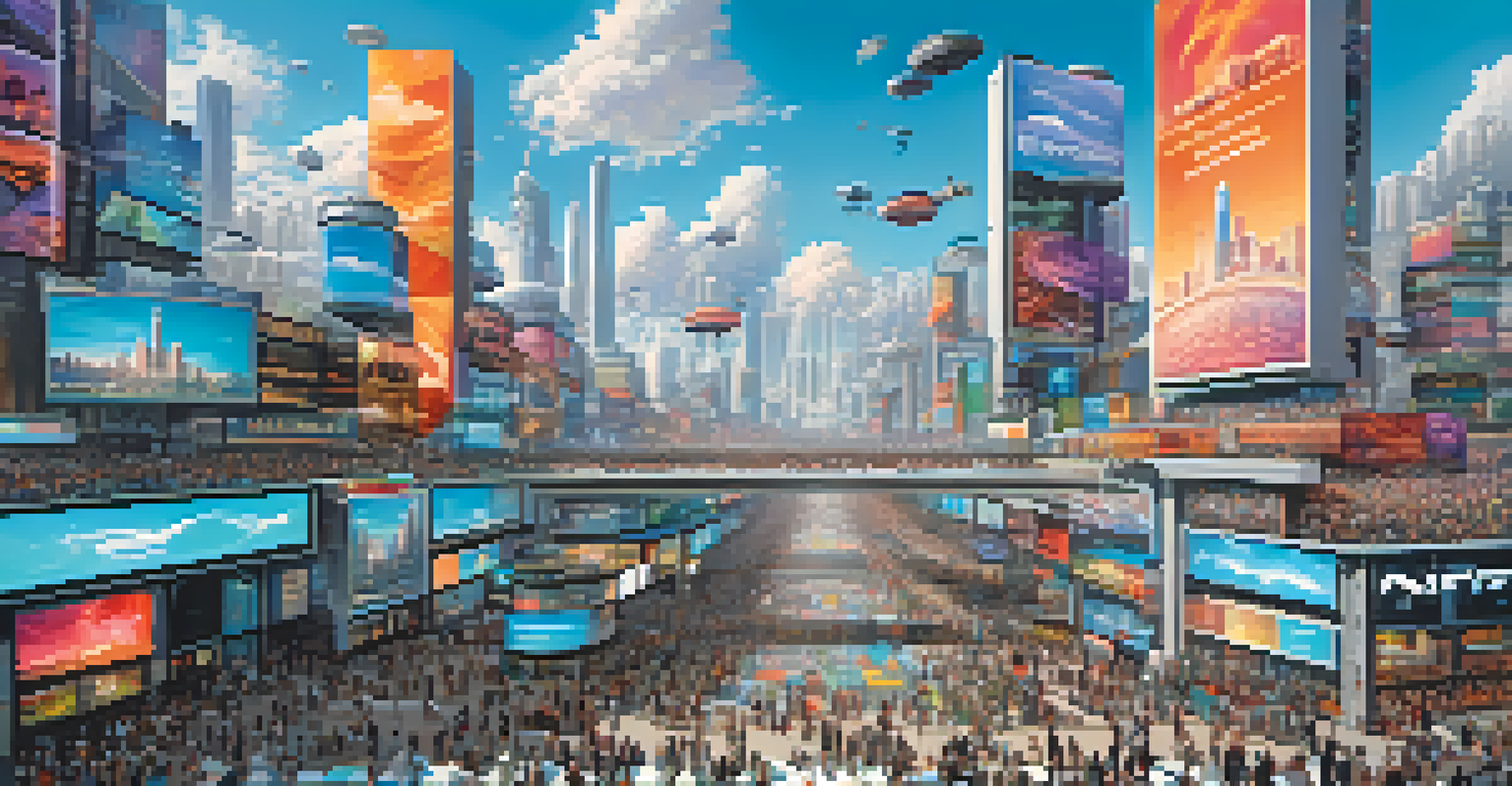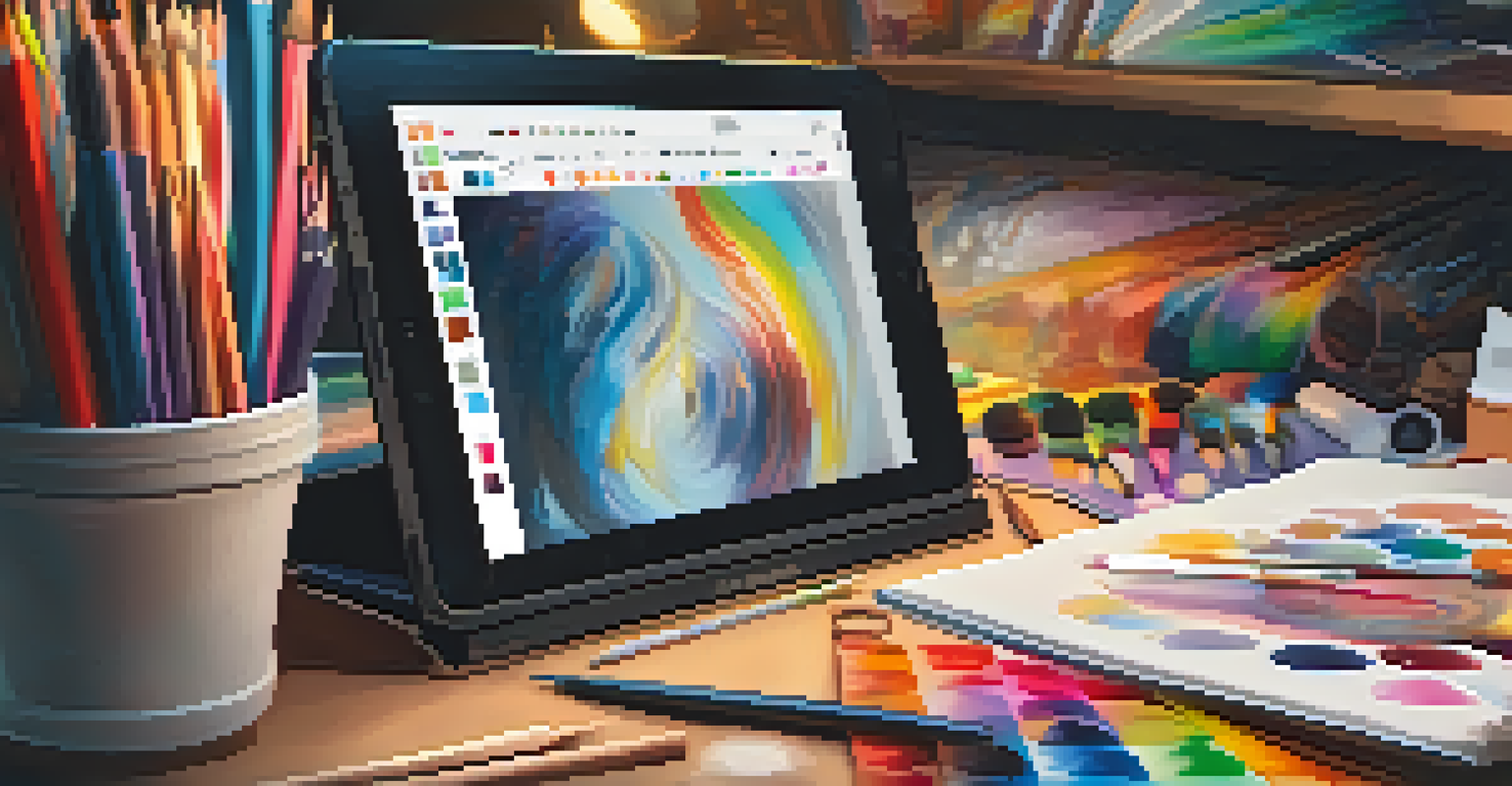Decentralization in NFT Marketplaces: A Game Changer Ahead

Understanding Decentralization in the Digital Space
Decentralization refers to distributing authority away from a central entity. In the realm of digital assets, especially NFTs, this means empowering users and creators rather than relying on a single platform. Imagine a marketplace where artists can sell their work directly to collectors without intermediaries taking hefty fees.
Decentralization is the future of the internet, giving power back to the people and opening up access to everyone.
This shift not only enhances transparency but also fosters trust among participants. When users can verify transactions and ownership on a blockchain, the risk of fraud reduces significantly. It's similar to having a peer-reviewed academic paper; the more eyes on it, the more credible it becomes.
Moreover, decentralization opens the door for diverse participation. Artists from various backgrounds can showcase their work, and collectors from all over the globe can access unique pieces, creating a vibrant, inclusive ecosystem.
Benefits of Decentralized NFT Marketplaces
One of the primary benefits of decentralized NFT marketplaces is lower fees for creators. Traditional platforms often take substantial cuts of sales, which can discourage artists from sharing their work. By cutting out the middleman, more revenue goes directly to the creators, allowing them to thrive.

Additionally, decentralized marketplaces tend to prioritize community governance. Users can vote on changes or improvements, ensuring that the platform evolves according to their needs. Think of it as a cooperative, where every member has a say in the direction of the community.
Decentralization Empowers Creators
Decentralization allows artists to sell directly to collectors, minimizing fees and enhancing transparency.
Lastly, decentralization enhances security. Users retain control over their assets, which reduces the risk of hacks or breaches that can occur in centralized systems. It's like having a personal vault rather than trusting a bank to safeguard your valuables.
Key Players in the Decentralized NFT Space
Several platforms are leading the charge in decentralizing the NFT marketplace. OpenSea, for instance, has integrated decentralized protocols that allow users to trade NFTs without centralized control. This means that users can enjoy a more democratic experience while engaging in the NFT market.
The beauty of the blockchain is that it allows for a new way of doing business that puts the power in the hands of the users.
Another notable player is Rarible, which operates on a decentralized model where users participate in governance through a native token. This inclusion empowers creators and collectors alike, allowing them to shape the future of the platform in real-time.
Finally, platforms like Foundation and Zora further exemplify this trend by focusing on creator-centric models. They prioritize artists' needs and provide tools that make it easier to mint and sell NFTs, reinforcing the community-driven ethos of decentralization.
Challenges Facing Decentralized NFT Marketplaces
Despite their promise, decentralized NFT marketplaces face several challenges. One of the most pressing issues is scalability. As more users flock to these platforms, the underlying blockchain networks can become congested, leading to slow transaction speeds and high fees during peak times.
Another significant challenge is user experience. Many decentralized platforms can be daunting for newcomers who may not be familiar with blockchain technology. This complexity can deter potential users, making it essential for platforms to focus on user-friendly interfaces and educational resources.
Community Drives Marketplace Growth
Active user participation fosters collaboration and innovation, creating a vibrant ecosystem for artists and collectors.
Lastly, regulatory concerns loom large. As governments start to scrutinize cryptocurrencies and NFTs, decentralized marketplaces must navigate a landscape that is still evolving. Adapting to these regulations while maintaining their core decentralized ethos will be a delicate balancing act.
The Role of Community in Decentralized Marketplaces
Community is at the heart of decentralized NFT marketplaces. These platforms often thrive on the active participation of their users, who contribute to discussions, share insights, and help promote artists. It’s akin to a garden that flourishes when everyone pitches in to nurture it.
Creating a vibrant community also leads to better collaboration and innovation. Artists can connect with each other, exchange ideas, and even collaborate on projects, which enriches the entire marketplace. This synergy can lead to unique NFT creations that capture the imagination of collectors.
Moreover, community-driven initiatives can enhance trust. When users feel invested in a platform, they're more likely to help maintain its integrity and promote positive experiences. This collective responsibility helps to build a strong, lasting ecosystem that benefits everyone involved.
The Future of Decentralized NFT Marketplaces
The future of decentralized NFT marketplaces looks bright, with ongoing innovations poised to reshape the landscape. As technology advances, we can expect more user-friendly interfaces, faster transactions, and greater scalability. This will create an even more accessible environment for both creators and collectors.
Additionally, the integration of new technologies like layer-2 solutions can alleviate some of the current challenges. These solutions offer faster and cheaper transactions, which can enhance user experiences and attract a broader audience into decentralized spaces.
Challenges Remain for Decentralized NFT
Scalability, user experience, and regulatory concerns are significant hurdles that decentralized NFT marketplaces must overcome.
Ultimately, as more people recognize the value of decentralization, we may see a shift away from traditional platforms. This evolution could lead to a more equitable distribution of revenue, power, and creative opportunities, forever changing the way we engage with digital art and collectibles.
Conclusion: Embracing Decentralization in NFTs
In conclusion, decentralization in NFT marketplaces represents a significant shift in how digital assets are created, bought, and sold. By empowering users and fostering community involvement, these platforms offer a fresh approach that contrasts sharply with traditional models. It's a powerful reminder of the potential for technology to democratize access and opportunity.
As we move forward, embracing this new paradigm will be crucial for artists and collectors alike. By understanding and participating in decentralized marketplaces, they can not only enhance their own experiences but also contribute to a more vibrant and inclusive digital ecosystem.

So, whether you're an artist looking to share your work or a collector hunting for unique pieces, now is the time to explore the exciting world of decentralized NFT marketplaces. The game is changing, and there's no better time to join in on this revolutionary journey.